Part 1
Come all you gentle people and listen to my tale,
Concerning a poor convict, from Suffolk he did hail.
For fourteen years transported as you shall understand
For to lead a poor and wretched life upon Van Diemen's Land.
Young Henry Cabell was his name and in Mendham he did dwell.
His poor but honest parents, they reared him right well
Till cruel hardship overcame them and his father in despair
To feed his family did embark upon a wild career.
Part 2
So his father with a band went out when all lay sound asleep
Into a house in Alburgh town those desperate men did creep.
Young Henry he went with them, having reached his nineteenth year;
His part it was to stand a watch and see the coast was clear.
But fortune was not with that band, kind favour passed them by,
For the constables they soon did come and did raise the hue and cry.
They was quickly overtaken and carried to the gaol
For to wring their hands and curse their fate until their strength did fail.
It was at Thetford assizes at the bar they soon did stand;
And the sentence it was given that all three of them should hang.
But up spoke Henry's mother, crying, “Spare my only son,
For his years are few, and for one crime his race should not be run.”
Fourteen years of transportation became Henry's punishment
And to the cells of Norwich Castle this young man was sent,
Leaving his tender mother for to tear her hair in woe
As her husband and Abe Carman to the gallows-tree did go.
Part 3
He had not been in Norwich Gaol nine months unto a year
When a pretty Norfolk serving-maid she also was sent there
For stealing silver teaspoons, she from Thurlton village came
For fourteen years a transport far across the raging main.
Part 4
For three long years and upward in that dark and bitter cell
Young Henry and Susannah they lovingly did dwell.
And in Seventeen-and-eighty-six, she bore him a baby boy;
Who would believe that such a pit could ever hold such joy?
But sorrow quickly followed which did pierce them to the heart
For the news was to them carried that their family must part.
Young Henry was to stay in gaol, as he did understand,
While Susannah she was to be sent to far Van Diemen's Land.
Down on his knees he pleaded, all from his breaking heart,
That from his own dear loved-ones he would not be forced to part.
But in that dreary dungeon young Henry had to stay
As his sweetheart and his little son to Plymouth were conveyed.
Part 5
It was in the month of January Australia's coast drew near
And in that fair clime the sun did shine which filled their hearts with cheer.
And soon in peaceful Sydney Cove at anchor they did ride
And admired the green and pleasant shore beyond the foaming tide.
Then up spoke Captain Philip, for so richly dressed was he:
“Some man must bear me through the surf and keep me from the sea!”
Then up stepped Henry Cabell, being one both stout and tall,
Saying, “Captain, I will be that man and will not let you fall.”
Andso they sat them in the jolly-boat and the crew did pull for land
And when they reached the shallows, Henry o'er the gunwale sprang.
He took the captain up on his back and he waded to the sand—
The very first of exiles in that distant part to stand.
And a fortnight later Henry took Susannah for his wife,
The comfort of his darkest days to comfort him through life.
And when their years of sentence passed, their happiness did grow
With property, prosperity and children also.
And so come all you gentle people who are lost in dark dismay,
And remember that the blackest night must some time yield to day;
Remember that the wildest storm eventually must pass
And like Henry and Susannah may you find your joy at last.
Come all you gentle people and listen to my tale,
Concerning a poor convict, from Suffolk he did hail.
For fourteen years transported as you shall understand
For to lead a poor and wretched life upon Van Diemen's Land.
Young Henry Cabell was his name and in Mendham he did dwell.
His poor but honest parents, they reared him right well
Till cruel hardship overcame them and his father in despair
To feed his family did embark upon a wild career.
Part 2
So his father with a band went out when all lay sound asleep
Into a house in Alburgh town those desperate men did creep.
Young Henry he went with them, having reached his nineteenth year;
His part it was to stand a watch and see the coast was clear.
But fortune was not with that band, kind favour passed them by,
For the constables they soon did come and did raise the hue and cry.
They was quickly overtaken and carried to the gaol
For to wring their hands and curse their fate until their strength did fail.
It was at Thetford assizes at the bar they soon did stand;
And the sentence it was given that all three of them should hang.
But up spoke Henry's mother, crying, “Spare my only son,
For his years are few, and for one crime his race should not be run.”
Fourteen years of transportation became Henry's punishment
And to the cells of Norwich Castle this young man was sent,
Leaving his tender mother for to tear her hair in woe
As her husband and Abe Carman to the gallows-tree did go.
Part 3
He had not been in Norwich Gaol nine months unto a year
When a pretty Norfolk serving-maid she also was sent there
For stealing silver teaspoons, she from Thurlton village came
For fourteen years a transport far across the raging main.
Part 4
For three long years and upward in that dark and bitter cell
Young Henry and Susannah they lovingly did dwell.
And in Seventeen-and-eighty-six, she bore him a baby boy;
Who would believe that such a pit could ever hold such joy?
But sorrow quickly followed which did pierce them to the heart
For the news was to them carried that their family must part.
Young Henry was to stay in gaol, as he did understand,
While Susannah she was to be sent to far Van Diemen's Land.
Down on his knees he pleaded, all from his breaking heart,
That from his own dear loved-ones he would not be forced to part.
But in that dreary dungeon young Henry had to stay
As his sweetheart and his little son to Plymouth were conveyed.
Part 5
It was in the month of January Australia's coast drew near
And in that fair clime the sun did shine which filled their hearts with cheer.
And soon in peaceful Sydney Cove at anchor they did ride
And admired the green and pleasant shore beyond the foaming tide.
Then up spoke Captain Philip, for so richly dressed was he:
“Some man must bear me through the surf and keep me from the sea!”
Then up stepped Henry Cabell, being one both stout and tall,
Saying, “Captain, I will be that man and will not let you fall.”
Andso they sat them in the jolly-boat and the crew did pull for land
And when they reached the shallows, Henry o'er the gunwale sprang.
He took the captain up on his back and he waded to the sand—
The very first of exiles in that distant part to stand.
And a fortnight later Henry took Susannah for his wife,
The comfort of his darkest days to comfort him through life.
And when their years of sentence passed, their happiness did grow
With property, prosperity and children also.
And so come all you gentle people who are lost in dark dismay,
And remember that the blackest night must some time yield to day;
Remember that the wildest storm eventually must pass
And like Henry and Susannah may you find your joy at last.
envoyé par Dq82 - 4/1/2018 - 14:46
Sempre dall'opera di Peter Bellamy "The Transports" si vedano anche Norwich Gaol e Us Poor Fellows.
Da cui tra l'altro ho preso in prestito la tua introduzione DQ82
B.B. - 4/1/2018 - 15:02
×
![]()

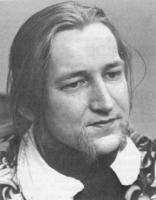
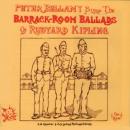
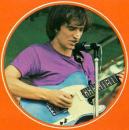
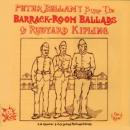
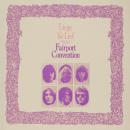
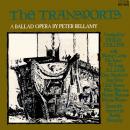


The Transports
This unique project relates the true story of Henry Cabell and Susannah Holmes, convicts transported to Australia on the “First Fleet” in 1787 and the trials and tribulations which culminated in that historic voyage. The tale is presented as a cycle of new compositions in the idiom of traditional English folk song, linked by narrative passages in the style and to the melodies of broadsheet ballads of the time. The orchestral passages and arrangements for the accompanied songs have been conveived in such a way as to underline the overall feeling of “period” and the instruments used are those likely to have been heard in the church bands or “quires” of East Anglian villages in those days. The singers have been chosen from the front rank of the English folk song revival, and the melodies composed to suit their individual style. A detailed account of the historical background to the story by Eric Fowler (the man who originally researched it) is included in the booklet.
mainlynorfolk.info
Henry Cabell: Mike Waterson
Susannah Holmes: Norma Waterson
The Turnkey: Martin Carthy
The Father: Nic Jones
The Mother: June Tabor
Abe Carman:A.L. Lloyd
The Shantyman: Cyril Tawney
The Convict: Martin Winsor
The Coachman: Vic Legg
The Transport: The Watersons
Street Singer: Peter Bellamy
The Ensemble
Rod Skeaping: director;
Philippa Davies: flute;
Sophia Wilson: oboe;
Keith Thomlinson: whistle, garklein-flötlein;
Felix Warnock: bassoon;
Alan Lumsden: serpent;
Oliver Brookes: cello;
Dave Swarbrick (Ian Campbell Group e Fairport Convention): violin on The Ballad of Henry and Susannah
Un’opera che racconta una storia vera, quella di Henry Cabell e Susannah Holmes, “two poor fellows” che nel 1783 furono condannati alla deportazione per aver commesso dei furti a causa della miseria. I due erano amanti e dalla loro relazione era nato un bimbo ma ai due non fu in un primo momento concesso di sposarsi e la famigliola corse il serio rischio di essere smembrata. Uno dei loro carcerieri s’impietosì e intercesse per loro presso il ministro dell’interno.
Così Henry e Susannah poterono unirsi in matrimonio e nel 1787, dando corso alla sentenza, furono imbarcati con il figlioletto su uno degli 11 vascelli del convoglio battezzato “First Fleet”, il primo trasporto verso l’Australia. Dopo 250 tremendi giorni di navigazione le navi approdarono nell’attuale zona di Botany Bay (Sidney), dove fu allestito il primo insediamento europeo e anche la prima colonia penale inglese nel continente australiano.